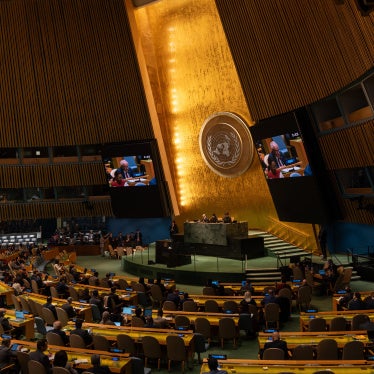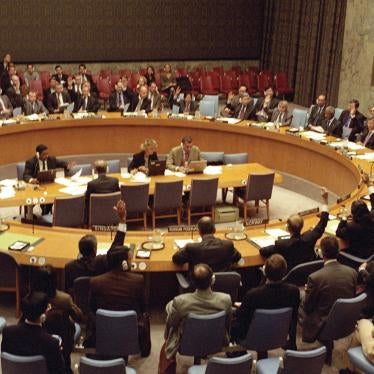A version of this white paper was published in December 2016 in International Community Law Review, Volume 18, special edition, Foreign Fighters and Foreign Terrorist Fighters: An International Law and Human Rights Perspective.
Summary
Since 2013, at least 47 countries from Australia to Uzbekistan have enacted laws and regulations to stop their citizens from joining extremist armed groups such as the Islamic State (also known as ISIS). Collectively, these so-called “foreign terrorist fighter” (“FTF”) measures erode international human rights and the rule of law.
A majority of “FTF” measures were enacted to comply with United Nations Security Council Resolution 2178 of September 24, 2014, which requires all UN member states to take urgent action to stem the “acute and growing threat posed by foreign terrorist fighters” both at home and abroad.
Drafted primarily by the United States, Resolution 2178 requires all member states to prosecute, as “serious criminal offenses,” an array of acts that include training or fighting with foreign terrorist groups, or financing their operations.
In a grave omission, however, Resolution 2178 does not limit the actions that member states may designate as “terrorism” or “terrorist”—terms for which no universal legal definition exists. This has left governments to craft dangerously open-ended definitions that can capture a range of activities not generally considered terrorism.
Those already targeted by such laws include not only terrorism suspects but also peaceful protesters, journalists, political opponents, civil society, and members of ethnic or religious groups, many of them Muslims. The “FTF” measures that could be used against them include warrantless searches, prolonged or indefinite detention without charge or trial, travel bans, loss of dual citizenship, convictions in sham trials, and excessive punishments including death.
Since the passage of Resolution 2178, armed extremist groups such as ISIS, Al-Qaeda, and their followers have killed thousands of civilians in heinous attacks from Paris to Bamako and beyond. Confronted with this transnational threat, the UN and its member states have a responsibility to respond. Indeed, international law places an obligation on governments to protect everyone within their jurisdiction.
But as the world witnessed in the aftermath of the horrific September 11 attacks 15 years ago, responses that flout human rights lower the moral bar for governments around the globe. They also can backfire by alienating local populations and fueling the recruitment narrative of groups that depict the world as one of Western oppressors versus Muslim oppressed.
The Security Council should promptly adopt a resolution requiring that all definitions of “terrorism” and “terrorist” that member states use to implement mandates such as Resolution 2178 are fully consistent with international law. UN member states, in turn, should promptly repeal or revise overly broad or vague “FTF” measures, and press their counterterrorism partners to do the same.







